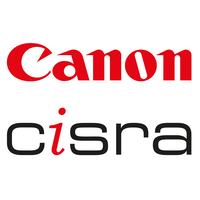.NET is a powerful and versatile technology framework developed by Microsoft. It provides a robust and scalable platform for developing a wide range of web applications, enterprise software, and cloud-based solutions. Here, we will explore the significance of .NET technology and how WNPL leverages it to build innovative and high-performing web applications.
The Significance of .NET Technology
.NET technology offers numerous benefits for web application development. Here are key reasons why .NET technology is important:
- Scalability and Performance:
.NET is known for its scalability and performance capabilities. It can handle high loads and complex applications efficiently, ensuring optimal performance even under heavy traffic.
- Rapid Application Development:
.NET provides a rich set of tools, libraries, and frameworks that accelerate the development process. Its extensive class library and code reuse capabilities allow developers to build applications quickly and efficiently.
- Cross-platform Development:
With the introduction of .NET Core, developers can now build cross-platform applications that can run on Windows, macOS, and Linux. This enables businesses to reach a wider audience and leverage the flexibility of different operating systems.
- Security and Reliability:
.NET technology offers robust security features, including built-in authentication and authorization mechanisms, data encryption, and protection against common web vulnerabilities. It also provides automatic memory management, reducing the risk of memory leaks and improving application reliability.
- Integration with Microsoft Ecosystem:
.NET seamlessly integrates with other Microsoft technologies and platforms, such as Azure cloud services, SQL Server databases, and Active Directory. This integration simplifies development, deployment, and management of applications within the Microsoft ecosystem.
.NET Development Services by WNPL
At WNPL, we specialize in .NET development, utilizing the power of the framework to build scalable and secure web applications. Our experienced development team has extensive expertise in the following .NET technologies:
- C#:
We utilize the C# programming language to develop robust and efficient web applications. C# offers a rich set of features, including strong typing, object-oriented programming, and extensive libraries, enabling us to build complex and scalable solutions.
- ASP.NET and ASP.NET Core:
We leverage ASP.NET and ASP.NET Core frameworks to build dynamic and interactive web applications. These frameworks provide a solid foundation for developing web applications, supporting features such as routing, model-view-controller (MVC) pattern, and data access.
- MVC (Model-View-Controller) Architecture:
We follow the MVC architectural pattern to build well-structured and maintainable web applications. MVC separates the application into distinct layers, allowing for better code organization, modularity, and testability.
- Web API Development:
We utilize ASP.NET Web API to build RESTful APIs that enable seamless communication between different systems and platforms. Web APIs allow for the integration of web applications with external services and facilitate data exchange.
- Integration with Microsoft Azure:
We leverage the capabilities of Microsoft Azure cloud services to develop scalable and highly available web applications. Azure provides a range of services, such as virtual machines, databases, storage, and identity management, which can be seamlessly integrated with .NET applications.
- Legacy .NET Application Modernization:
We assist businesses in modernizing their existing .NET applications to leverage the latest technologies and frameworks. We migrate legacy applications to newer versions of .NET or re-architect them using ASP.NET Core to improve performance, scalability, and maintainability.
- Custom .NET Development:
We offer custom .NET development services to build tailored web applications that meet your specific business requirements. Our team works closely with you to understand your needs and develop a solution that aligns with your objectives.
By leveraging our .NET development services, you can build robust, scalable, and secure web applications that align with your business goals. Our expertise in .NET technologies empowers us to deliver solutions that optimize performance, enhance user experiences, and integrate seamlessly with the Microsoft ecosystem.
Tools and Frameworks employed
In the realm of .NET Technology, WNPL harnesses the power of various tools & frameworks to facilitate the development of robust and efficient web applications. These frameworks provide a foundation for building scalable and high-performance solutions.
Here are some commonly employed tools & frameworks within the .NET ecosystem:
- IdentityServer:
IdentityServer is an OpenID Connect and OAuth 2.0 framework for authentication and single sign-on in .NET applications. It provides a secure and flexible way to authenticate users and protect APIs. IdentityServer allows developers to centralize authentication and authorization logic, making it easier to manage user access across multiple applications and services.
- Hangfire:
Hangfire is a background job processing library for .NET applications. It provides a simple and reliable way to perform asynchronous and scheduled background tasks. Hangfire allows developers to offload time-consuming operations from the main request/response flow, improving the responsiveness and scalability of web applications.
- Azure App Service:
Azure App Service is a fully managed platform for hosting .NET web applications in the cloud. It provides an easy way to deploy, scale, and manage web applications without the need for infrastructure management. Azure App Service supports automatic scaling, high availability, and integration with other Azure services, making it an ideal choice for hosting .NET web applications.
- Visual Studio:
Visual Studio is the integrated development environment (IDE) of choice for .NET development. It provides a comprehensive set of tools, including a code editor, debugging capabilities, project management, and collaboration features. Visual Studio offers a rich development experience for building, testing, and deploying .NET web applications.
- NuGet:
NuGet is a package manager for .NET that allows developers to easily add and manage third-party libraries and dependencies in their projects. It provides a vast repository of packages that can be seamlessly integrated into .NET applications. NuGet simplifies the process of adding functionality to web applications by handling package installation, versioning, and dependency resolution.ASP.NET MVC:
NET MVC (Model-View-Controller) is a framework that enables the development of web applications following the MVC architectural pattern. It provides a structured approach to building applications by separating concerns into models, views, and controllers. ASP.NET MVC offers features like routing, data validation, and a flexible templating system, making it ideal for building scalable and maintainable web applications.
- NET Core:
ASP.NET Core is a cross-platform, open-source framework for building modern web applications using .NET. It offers improved performance, flexibility, and modular design compared to its predecessor, ASP.NET. ASP.NET Core supports a wide range of deployment scenarios and enables developers to build applications that run on Windows, Linux, or macOS. It provides features like dependency injection, middleware pipeline, and support for modern web standards.
- Entity Framework:
Entity Framework is an object-relational mapping (ORM) framework that simplifies database access and management in .NET applications. It allows developers to work with databases using object-oriented programming techniques, abstracting away the complexities of database operations. Entity Framework provides automatic mapping between database tables and object models, support for query building, and database migration capabilities.
- Xamarin:
Xamarin is a framework for building cross-platform mobile applications using .NET. It allows developers to write code in C# and share a significant portion of it across different platforms, including iOS, Android, and Windows. Xamarin provides a native user interface and access to platform-specific APIs, enabling the development of high-performance mobile apps.
- Blazor:
Blazor is a web framework that allows developers to build interactive web UIs using C# instead of JavaScript. It combines the power of .NET with modern web technologies like WebAssembly to deliver rich client-side experiences. With Blazor, developers can write code that runs directly in the browser, reducing the need for JavaScript and improving productivity.
- Windows Presentation Foundation (WPF):
WPF is a graphical subsystem for building desktop applications on Windows using .NET. It provides a rich set of controls, data binding capabilities, and support for multimedia and animation. WPF enables the creation of visually stunning and highly interactive desktop applications.
- NET Web API:
ASP.NET Web API is a framework that enables the development of HTTP-based web services using .NET. It allows developers to build RESTful APIs that can be consumed by various clients, including web browsers, mobile apps, and other services. ASP.NET Web API provides powerful routing mechanisms, content negotiation, and support for authentication and authorization.
- Windows Communication Foundation (WCF):
Windows Communication Foundation is a framework for building distributed systems using .NET. It provides a unified programming model for creating secure and reliable services that can communicate over various protocols, including HTTP, TCP, and MSMQ. WCF offers features like message-based communication, interoperability with other platforms, and support for advanced messaging patterns.
- SignalR:
SignalR is a real-time web framework that enables bidirectional communication between web servers and clients. It allows developers to build applications that push real-time updates to connected clients, making it suitable for scenarios like chat applications, real-time dashboards, and collaborative editing. SignalR provides a simple programming model and supports multiple transport protocols, including WebSockets and long polling.
- NUnit:
NUnit is a unit testing framework for .NET applications. It provides a rich set of assertion methods and a flexible test execution framework, making it easy to write and run automated tests. NUnit allows developers to verify the behavior of their code, detect regressions, and ensure the quality of their applications.
- AutoMapper:
AutoMapper is a convention-based object-to-object mapping library for .NET. It simplifies the process of mapping one object to another by automatically matching properties based on naming conventions. AutoMapper reduces the manual effort required for mapping objects and improves development productivity.
- Serilog:
Serilog is a flexible and easy-to-use logging framework for .NET applications. It allows developers to log structured events with rich contextual information. Serilog supports various output sinks, including file, database, and external services, making it versatile for capturing and analyzing log data.
- Dapper:
Dapper is a lightweight and efficient object-relational mapping (ORM) library for .NET. It provides fast data access by mapping database results directly to objects, without the need for heavy abstractions. Dapper is known for its performance and simplicity, making it a popular choice for working with relational databases.
- Microsoft Azure:
Microsoft Azure is a cloud computing platform that provides a wide range of services for building, deploying, and managing applications. It offers services like virtual machines, databases, storage, and serverless computing. Azure allows developers to scale their applications, ensure high availability, and leverage various cloud-based features.
- Entity Framework Core:
Entity Framework Core is a lightweight and cross-platform version of the Entity Framework ORM framework. It provides a modern object-relational mapping approach and enables developers to work with databases using .NET objects. Entity Framework Core supports multiple database providers and offers features like migrations, query composition, and change tracking.
Further reading
- ".NET Core in Action" by Dustin Metzgar:
This book provides a comprehensive guide to building web applications using .NET Core. It covers topics such as MVC, REST APIs, deployment, and security.
- "Pro ASP.NET Core MVC" by Adam Freeman:
This book offers a deep dive into ASP.NET Core MVC, covering topics such as model-view-controller architecture, routing, data access, and authentication.
- "C# in Depth" by Jon Skeet:
This book explores advanced features and concepts of the C# programming language, which is widely used in .NET development. It covers topics such as LINQ, asynchronous programming, and generics.
- "Entity Framework Core in Action" by Jon Smith:
This book focuses on using Entity Framework Core, a popular object-relational mapping (ORM) framework for .NET applications. It covers topics such as data modeling, querying, and performance optimization.
- "ASP.NET Core Application Development: Building an Application in Four Sprints" by James Chambers, David Paquette, Simon Timms, and Jon Galloway:
This book provides a practical guide to building a complete web application using ASP.NET Core. It covers topics such as project organization, development workflow, testing, and deployment.
- "Dependency Injection in .NET" by Mark Seemann:
This book explores the principles and patterns of dependency injection in .NET applications. It covers topics such as inversion of control, DI containers, and best practices for designing decoupled and maintainable code.
- "Mastering ASP.NET Core 3.1" by Ricardo Peres:
This book covers advanced topics in ASP.NET Core 3.1, including Razor Pages, SignalR, security, performance optimization, and cloud deployment.
- "ASP.NET Core in Action" by Andrew Lock:
This book offers practical insights into building web applications with ASP.NET Core. It covers topics such as middleware, routing, dependency injection, testing, and deployment.
- "Pro ASP.NET Core Razor Pages" by Adam Freeman:
This book focuses on Razor Pages, a lightweight web framework in ASP.NET Core. It covers topics such as data handling, validation, layout, and reusable components.
- "Modern API Design with ASP.NET Core 2" by Fanie Reynders and Kevin Dockx:
This book discusses modern API design principles and practices using ASP.NET Core 2. It covers topics such as RESTful architecture, versioning, authentication, and documentation.









